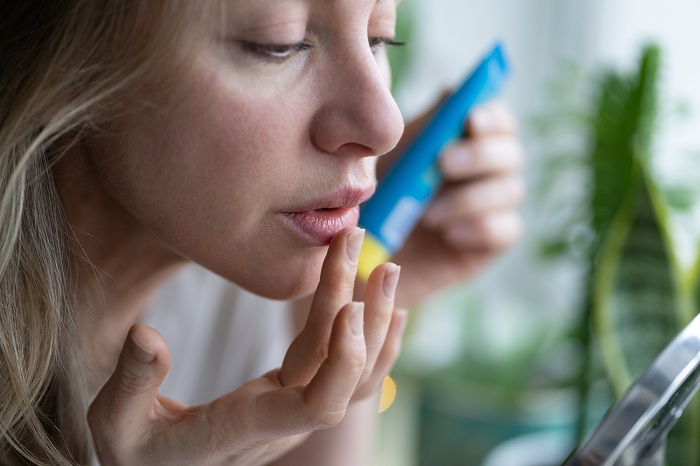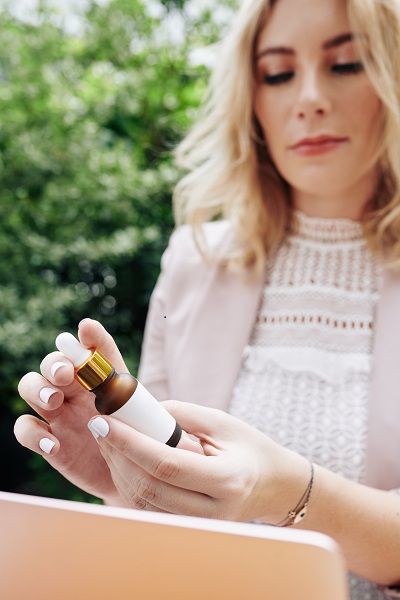Often hailed as the hero ingredient in the world of skincare, just about everyone is familiar with retinol. There’s no denying the skin benefits of vitamin A, but there was also no way to hide from its side effects…until now. Meet bakuchiol – the retinol alternative that beauty experts can’t stop raving about. What exactly is it, and why all the hype? Let’s take a closer look at skincare’s latest must-have.
Contents
What is Bakuchiol?

Bakuchiol is a natural plant extract. It comes from the seeds and leaves of the psoralea corylifolia plant, which is native to eastern Asia. Bakuchiol extract has long since been used in traditional Ayurvedic and Chinese medicine, but it’s now making its way into skincare too.
The Skin Benefits of Bakuchiol
Bakuchiol is often referred to as a natural alternative to retinol, but the two ingredients are actually very different on a molecular level. So, how does bakuchiol work and what does it do for the skin? Turns out, while its main benefits may mimic those of retinol, this natural ingredient also does so much more.
Reduces the Appearance of Fine Lines and Wrinkles
Being a potent antioxidant means that bakuchiol is just as effective as retinol at minimizing fine lines and wrinkles. It works by stimulating collagen production, the protein that gives your skin its plumpness, firmness, and elasticity from within.
It also prevents free radical damage, which would have otherwise destroyed your existing collagen fibers. By boosting collagen levels to such an extent, bakuchiol products are able to smooth away both soft lines and deeper creases while giving the skin a tighter finish, making it no surprise that it’s now being formulated into a range of anti-aging products.
Soothes Inflammation
Bakuchiol is loved for its anti-inflammatory properties. This makes it useful for those with sensitive skin types who also suffer from inflammatory skin conditions, such as psoriasis or rosacea.
While retinol would be too irritating, therefore exacerbating the inflammation, bakuchiol has the opposite effect. It’ll leave your skin looking and feeling soothed and calm, which can also help to give your skin tone and skin texture a brighter, softer, and more even appearance.

Has Antibacterial Properties
If you’re looking for a new acne treatment, you may have found it. Not only is bakuchiol an anti-inflammatory, which can help to prevent breakouts, but it also has antibacterial effects [1]. A bakuchiol serum would be able to destroy the acne-causing bacteria on the surface of your skin, leaving you pimple-free.
Stabilizes and Enhances the Effects of Retinol
Not only is retinol associated with irritation, but it’s also infamous for being difficult to stabilize in a skincare formula. Be it an eye cream, a serum, or any other retinol product, the ingredient quickly oxidizes, rendering that product useless.
However, recent research has found that bakuchiol can actually stabilize retinol, while also making it more effective. This is why you’ll now find both bakuchiol and retinol being used in anti-aging products – the two together are amazing for fighting free radicals and reducing wrinkles. Even better, the bakuchiol makes the retinol less irritating. This not only means that those who have sensitive or dry skin would now be able to start using retinol, but it also means that everyone else will be able to use higher concentrations of vitamin A, without having to worry about side effects.
What Does Cosmetic and Clinical Research Say About Bakuchiol’s Safety?
Several studies have been carried out on bakuchiol’s safety. They all conclude in the same way – the ingredient is safe for all skin types and doesn’t have any known side effects.
How to Add Bakuchiol to Your Skincare Routine

When it comes to choosing a bakuchiol product, you have plenty of options. Before we run through these, let’s talk concentration. You’ll find bakuchiol used in a variety of strengths, with 0.5-2% being the most beneficial for the skin.
In terms of product type, a serum tends to be the go-to for many. Its lightweight texture means that the ingredients will be carried down into the deeper layers of your skin, where they’ll be able to bring about the biggest changes, particularly when it comes to fine lines. A few drops of a serum that contains both vitamin C and bakuchiol oil would be especially effective in your anti-aging efforts.
Bakuchiol is also used in both day cream and night cream formulas. Unlike retinol, it isn’t inactivated by the sun, which is why it can be used at any time. The best skin cream for the day would be a lighter formula, whereas you should look for bakuchiol mixed with hydrating oils, such as sweet almond and sea buckthorn berry, for night use.
If you’re vegan, you don’t need to worry about bakuchiol in beauty products. While some forms of retinol are derived from animal products, bakuchiol is a safe and natural vegan alternative.
Whichever product you end up choosing, don’t forget to perform a patch test first. While bakuchiol may be non-irritating, the other ingredients in the new product that you’re using could easily cause a reaction in your skin. This is why just about every dermatologist and cosmetic chemist out there will typically recommend a 24-48 hour patch test.
FAQs
Is bakuchiol better than retinol?
Many beauty experts would say yes, bakuchiol is better than retinol, because not only does it offer the same results, but it can also be used on all skin types.
Is bakuchiol safer than retinol?
Yes, bakuchiol is safer than retinol – it doesn’t cause any irritation to the skin.
Is bakuchiol safe for sensitive skin?
Yes, bakuchiol is safe for sensitive skin, as well as all other skin types.
Is Bakuchiol a Worthy Natural Alternative to Retinol?
Many ingredients are often referred to as “the new retinol”, but few hold up in reality. Thankfully, bakuchiol is different. Science has proven that this ingredient really does offer comparable benefits but without any of the side effects, making bakuchiol well deserving of its reputation as the best natural alternative to retinol available.
References
[1] https://www.ncbi.nlm.nih.gov/pmc/articles/PMC90775/